Fortnite addiction is harming a new wave of Australian kids, sparking aggression, absenteeism
Fortnite can be harmful to any child. But now, the World Health Organisation has recognised playing such games can lead to a serious medical complication. SEE OUR PARENTS GUIDE
Gaming
Don't miss out on the headlines from Gaming. Followed categories will be added to My News.
‘Gaming disorder’ was officially recognised as a medical addiction by the World Health Organisation this week in a ruling Australian neuroscience experts and child psychiatrists said was long overdue and could help develop treatments for troubled children.
The condition, which WHO defined as “impaired control over gaming” to the detriment of the sufferer’s social, family, school and professional life despite “negative consequences,” was recognised in the Organisation’s 11th Classifications of Diseases.
But the move still faces opposition from gaming groups, including the Global Video Game Industry Associations, which counts representatives from Australia, New Zealand, Europe, the US and other nations.
The group issued a statement slamming the decision, which it claimed was not based on “sufficiently robust evidence”.
“There is significant debate among medical and professionals and about today’s WHO action,” the group said in a statement.
“We are concerned they reached their conclusion without the consensus of the academic community. The consequences of today’s action could be far-reaching, unintended, and to the detriment of those in need of genuine help.”
The news comes as Australian children as young as seven years old are launching aggressive attacks on their parents, lying to get out of school, and avoiding family holidays to play Fortnite marathons as the video game phenomenon recruits a new generation of underage players.
MORE: Fortnite parents guide: How to help your addicted child
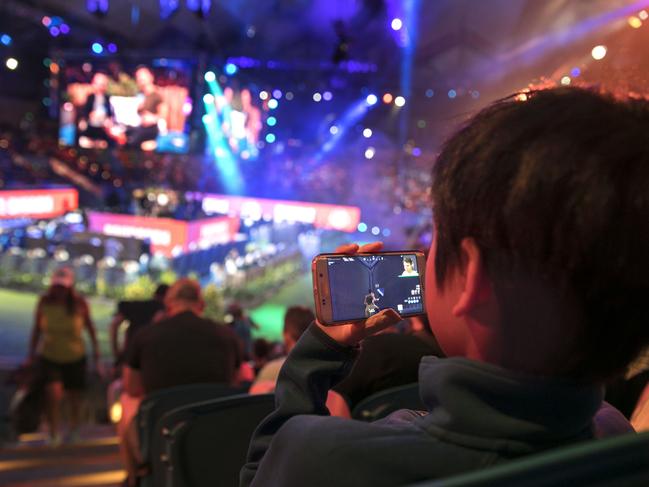
In one extreme example, a teenage boy threatened to set fire to his room unless his parents gave him back his computer, before carving his name in a wall of the family home.
Education and neuroscience experts warn excessive and premature use of the video game, and those like it, is leading to a ballooning crisis for Australian families, some of whom are now checking their children into dedicated rehabilitation centres to wean them off screens and reintegrate them into social, family and school life.
And psychiatrists are calling for greater recognition of the problem by the Australian government so more affected families can afford to seek treatment.
Despite its release more than a year ago, Fortnite: Battle Royale remains at the centre of underage video game obsessions, experts say, with the multimillion-dollar phenomenon now reporting more than 250 million players worldwide.
The Epic Games creation, which has been described as Hunger Games meets Call of Duty, even broke its own record earlier this year, with more than 10.8 million people playing simultaneously.
While the game features several modes of play, the best known sees 100 players dropped on to an ever-shrinking battlefield where they must kill all other players to be the last avatar standing.
The violence is cartoonish, the game free to play and available across smartphones and consoles, with developers making money from personalising characters, buying victory dances, and loot boxes.
Learning expert and neuroscience communicator Jill Sweatman said Fortnite’s low entry price continued to attract children, even though many were too young and mentally unprepared to handle its content.
“Children as young as seven and eight (years old) have been overly committed to Fortnite and this game has an age recommendation of 13,” she said.
“You have kids from a very young age exposed to significant violence. There are short-term consequences and significant long-term consequences to this.”
Ms Sweatman said she had witnessed extreme examples of Fortnite addiction even in Australian children deemed old enough to play the game.
In one case, a teenager threatened arson after parents tried to curtail his gaming obsession.
“He went to school late every single day and would play games all weekend, and when his parents decided it was time to take the computer away — and this was a 14-year-old boy — he threatened to burn down his room and took a knife and carved his name into the wall of the kitchen,” she said.
“There is a growing swell of families that are experiencing this and we don’t know about it.
“Many families are getting to a point of crisis, as their kids are 14, 15, or 16, and they’ve lost control and don’t know what to do.”
Fortnite gaming obsessions have become so pervasive in Australia that a growing number of psychologists now specialise in treatment for gaming addiction, and gaming rehabilitation and treatment centres have been established in Sydney and Melbourne.
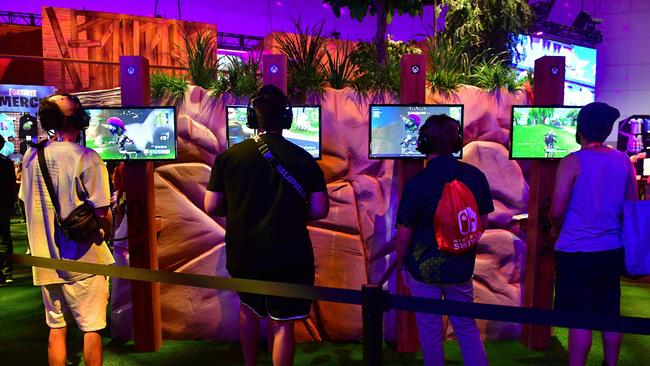
Sydney child psychiatrist Dr Philip Tam said he had referred some patients to gaming detox centres but they were “quite pricey” and, similarly, extended private therapy could be a large burden on single-parent or low-income households in desperate need of help.
He called for internet and gaming addiction to be recognised and treated as part of the Medicare system.
“A lot of families can’t afford the private sector,” Dr Tam said.
“I hear of kids who have been turned away from the public health sector because they don’t believe it’s a disorder.”
Cyber safety educator Leonie Smith said primary and high schools were also reporting problems from students obsessed with the online shooting game.
“This week, teachers were telling me there were several cases where kids were avoiding school to play Fortnite,” she said.
“One boy told his Mum he was being bullied at school and he didn’t want to go. When she told the teacher, she found out it was a complete story. He was staying up all night playing Fortnite and then couldn’t function the next day.”
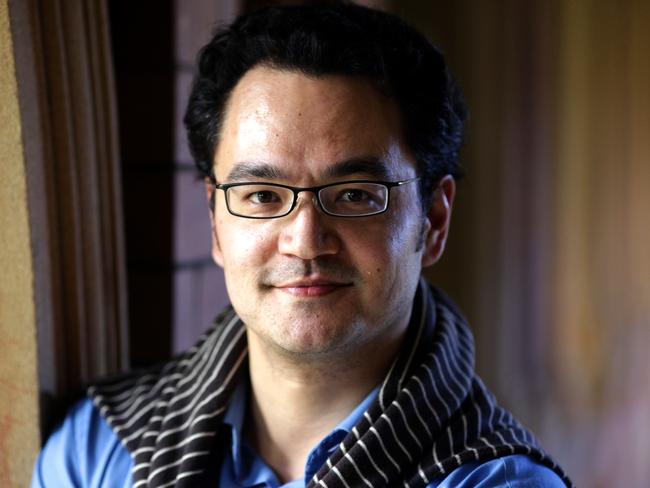
Despite the new release of rival game Apex Legends, Ms Smith said Fortnite remained the number one threat to impressionable players due to its deceptively lighthearted appearance and its acceptance by unsuspecting parents.
Western Sydney University technology and learning researcher Dr Joanne Orlando said the game continued to create widespread family disharmony in Australia, even among families trying to do the right thing.
“There is a lot of peer pressure on kids to play Fortnite and there is a lot of pressure on parents not to let their kids play, particularly primary school kids. There are opposing pressure points in a family and that can be really difficult,” she said.
Dr Orlando said many children could be coaxed away from excessive video game use if parents acted early but others who allowed the game to affect their lives for a significant period of time could require professional treatment.
GAMING DISORDER CLASSIFICATION OVERDUE
Many mental health experts argue the widespread medical issue’s classification is at least five years’ overdue and will arrive at a time when the issue has become both common and harmful in Australia, with a growing number frustrated and desperate parents seeking professional help.
But some international gaming bodies were still warning against the move, arguing more research and education was needed in the field, and an official definition could create “a risk of misdiagnosis”.
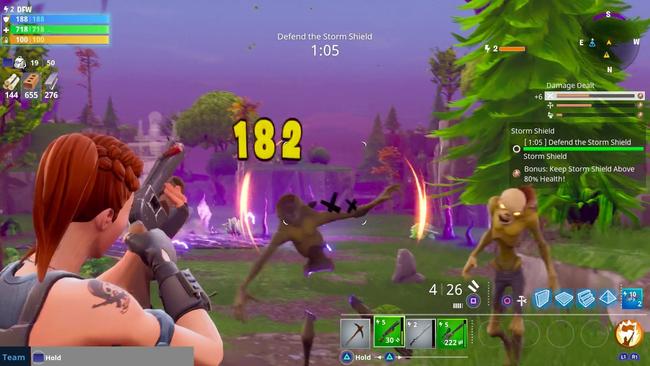
To be diagnosed with gaming disorder, patients must exhibit behaviour that significantly impairs their social, educational or working lives for “at least 12 months”.
Child psychiatrist Dr Philip Tam welcomed the expected recognition but said it would come too late for a growing number of Australian families struggling to cope with game addictions in their households.
“I’ve been seeing cases for about 10 years but it’s getting more common and it’s affecting kids at younger and younger ages,” he said.
“I’m seeing so many families that have been destroyed by violence, by kids dropping out of school, and by stress caused by internet addiction. It should be classified as a disorder because there are many, many families in Australia really desperate for help.”

Neuroscience expert Jill Sweatman said official recognition of gaming disorder could create a new framework for research into the problem and investigate potential treatments.
It could also help parents deal with what was currently a “silent addiction,” she said, as many were too embarrassed to seek help.
But official recognition for gaming disorder is still opposed by some sources, including the Entertainment Software Association, which represents major publishers including Fortnite creator Epic Games.
The trade body met with WHO late last year in a bid to postpone any official recognition of the disorder.
“We believe that continued conversation and education is needed before any classification is finalised,” ESA chief executive Stanley Pierre-Louis said.
“In fact, leading mental health experts have cautioned repeatedly that classifying ‘gaming disorder’ creates a risk of misdiagnosis for patients who most need help. The billions of video game players around the world who will be affected by a … classification error deserve action based on meticulous research.”
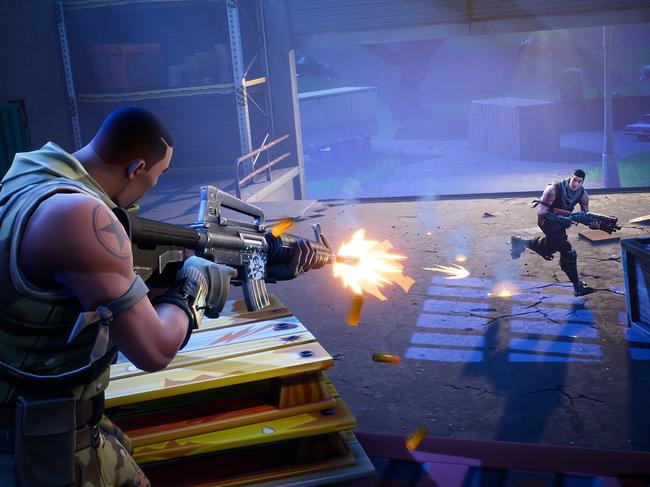
The International Game Developers Association also called the classification “troubling” and “prejudicial against gaming as a hobby and interest”.
But Kidspace internet Addiction Centre director and psychologist Brad Marshall said the Organisation’s ruling was ultimately “kind of irrelevant” when there were so many Australian children, teenagers, and parents suffering the repercussions internet and video game addiction.
“If you have a child who is seriously in this category, you know it’s like walking around on eggshells and any suggestion about moderating their activity can end in violence,” he said.
“I’ll let the academics argue about whether (this disorder) exists and what the statistics are. We need to know what’s the treatment and how do we help families.”
Dr Marshall, who is also known as the Unplugged Psychologist and who is releasing a book soon titled The Tech Diet for your Child & Teen, said not all children or teens were prone to developing gaming problems, and he estimated about 10 per cent experienced “heavy” game use, and another one to two per cent of children were prone to “really problematic, excessive use that some may call addiction”.
Dr Tam warned parents not to jump to conclusions over minor infractions involving video games, but watch for signs of a growing obsession with video games to the exclusion of other parts of their lives.
“Video games are great — kids can talk to their friends, they can solve problems but, like everything, it has to be in moderation,” Dr Tam said.
“When kids are not coming down for family dinners, or not going outdoors or playing sport, that’s when it becomes a problem and, unfortunately, a lot of parents have lost authority in their households.”
Originally published as Fortnite addiction is harming a new wave of Australian kids, sparking aggression, absenteeism


